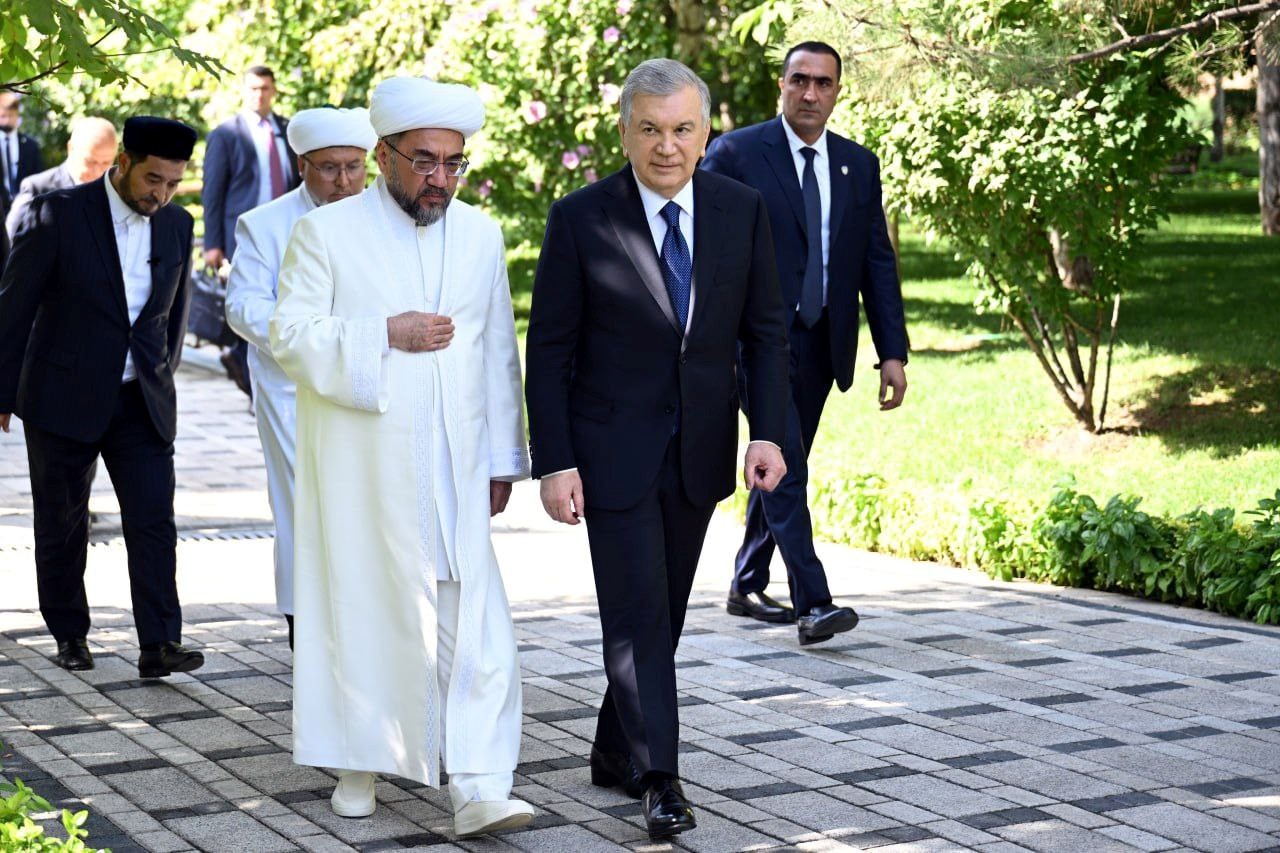Tashkent remembers victims of persecutions
President Mirziyoyev presided over the ceremonies of a Day dedicated to those who died as a result of the repressions of the tsars and the Stalinist regime. In recent years, more than 1,200 persecuted people have been rehabilitated after a careful review of their trials. The 150th anniversary of the birth of Makhmudkhodža Bekhbudi, the leader of Jadidism, a form of Islamic modernism in the Turanian language of the late 19th century, was also commemorated.
Tashkent (AsiaNews) - The President of Uzbekistan, Shavkat Mirziyoyev, presided over the ceremony of the Day of Remembrance for the victims of repression on Shakhidar Khotirasi Avenue in Tashkent, reading some suras from the Koran, sharing the memorial plov and recalling that ‘we must educate the younger generations to be aware of the great value of independence, remembering what great personalities our ancestors were’.
Prayers and remembrance of those who gave their lives for their country precede the celebrations for the country's independence, placing them as ‘teachers and examples’ of what we want to achieve today.
According to the presidential press office, during the years of imperial and Stalinist repression, more than 100,000 innocent citizens were persecuted, many of whom were shot on unfounded and fabricated charges, and many were sent into exile, leaving their families without a source of livelihood. “These lessons further encourage us to appreciate the freedom we enjoy today and to strengthen our ability to live as an independent country,” Mirziyoyev insisted.
The Uzbek president highlighted the efforts made in recent years to ensure that the memory of the victims is preserved: more than 1,200 victims of persecution have been rehabilitated after a careful review of their cases during the Soviet era, the Museum of Victims of Repression in the capital has been rebuilt and expanded several times, and similar museums have been opened in the regions.
This year in particular marks the 150th anniversary of the birth of Makhmudkhodža Bekhbudi, the leader of the Jadidism movement, a form of Turanian-language Islamic modernism in the Turkestan region of the Russian Empire at the end of the 19th century, whose affiliates, known as Jadidis, were also called Taraqqiparvarlary (“progressives”) or simply Yoshlary (“young people”) in Turkish, and sought to harmonise Islamic traditions with developments in Western science and thought. A state museum dedicated to the study of the Jadidi legacy has been opened in Bukhara.
In recent years, the first week of October was dedicated to the victims of repression, but this year it was decided to include a ‘week of remembrance and awareness-raising’ before Independence Day.
The president believes that it is necessary to “fill this time with meaningful content that is accessible to all”, trusting in the imminent opening of schools where special lessons will be held at all levels, with television broadcasts and competitions for young people on these topics, highlighting in particular the contribution of the Jadids to the development of culture and social education in Uzbekistan.
He also recalled the students from Turkestan who had studied in Germany in the 1920s, who, had they not fallen victim to repression, could have “transformed our entire society”, and it is very important that younger people can learn about and “be proud of these examples”.
The Jadids were in fact ‘innovators in many areas of people's lives’, writing the first novels in the Uzbek language, with theatrical and cinematographic performances, and publishing important manuals on many subjects of study, so much so that ‘these spiritual foundations have become decisive for our national unity and the stability of our common life’.
For Mirziyoyev, these examples are more necessary than ever at a time when threats to the independence of nations are spreading once again throughout the world, and greater unity, attention and openness to important reforms in many areas of society are required in order to “look to the future with more hope and conviction in our possibilities”.
Fortunately, the president concludes, ‘peace and harmony reign in Uzbekistan, and this is our true wealth.’
07/02/2019 17:28
11/08/2017 20:05







.png)










